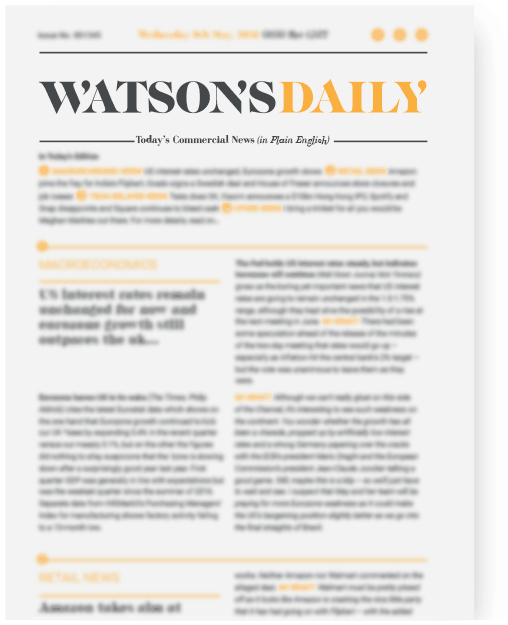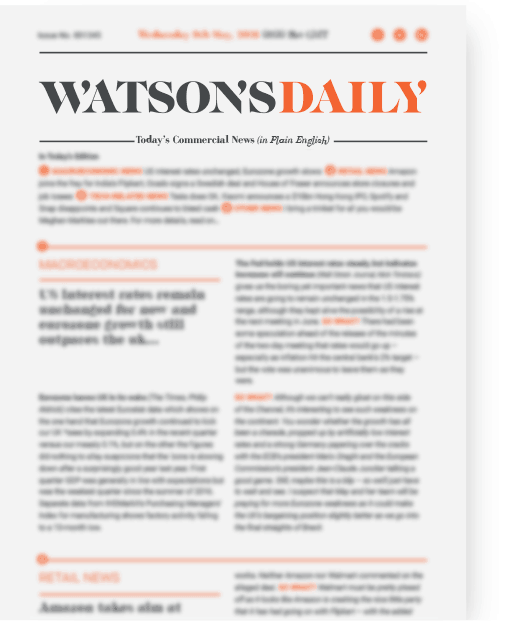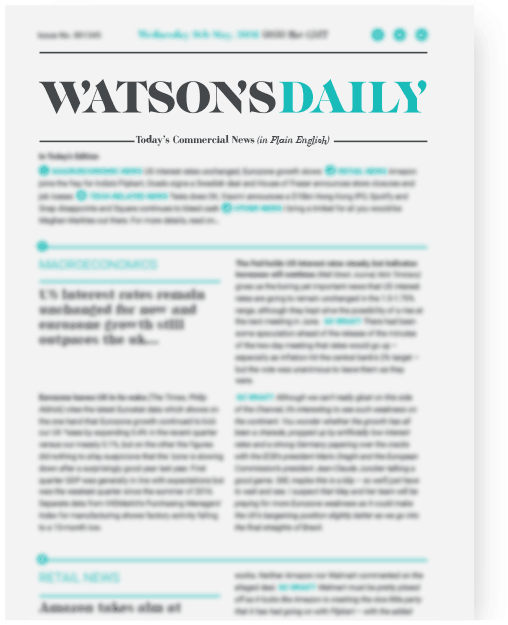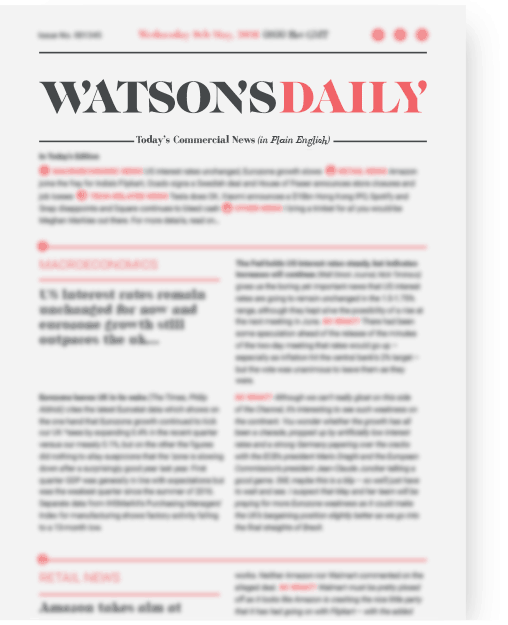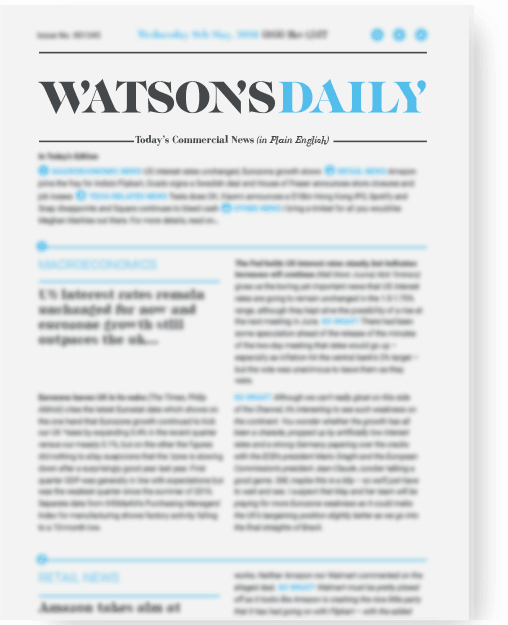In MACRO NEWS, Germany edges closer to recession and Goldman reckons UK interest rates will hit 5%. In CONSUMER, EMPLOYMENT & BUSINESS TRENDS NEWS, 100% mortgages return, UK shoppers rein it in, WFH loses its lustre and bosses get optimistic. In TECH NEWS, investors pour money into AI, Big Tech could get even bigger as a result and WhatsApp might disappear. In INDIVIDUAL COMPANY NEWS, two Alzheimer drugs offer hope and Tyson Foods slides. AND FINALLY, I bring you a vision in a martini...
You need to have an active subscription in order to view/use this page. If you are an existing subscriber, please login below.
Alternatively, if you are new to Watson’s Daily and would like to dip your toe in, you can get a trial Bronze level subscription HERE. This will last for one week for free and then go to paid unless you cancel within the week. You can, of course, dive straight in with Bronze, Silver or Gold membership!
The main differences between the levels of membership are the materials you get access to and your access to me! Bronze is great – there’s loads of functionality here. I would, however, recommend Silver if you are serious about getting better with your knowledge as quickly as possible. Gold gives you all the benefits of Silver but with added guaranteed small group calls and option of one-on-one calls with me to talk about commercial awareness and/or careers/interviews.
Watson’s Daily is all about helping you understand, remember and utilise knowledge of the business and financial markets news in your career and/or studies. I aim to give you the tools you need to turbo boost your knowledge whilst also having a bit of fun as well!





